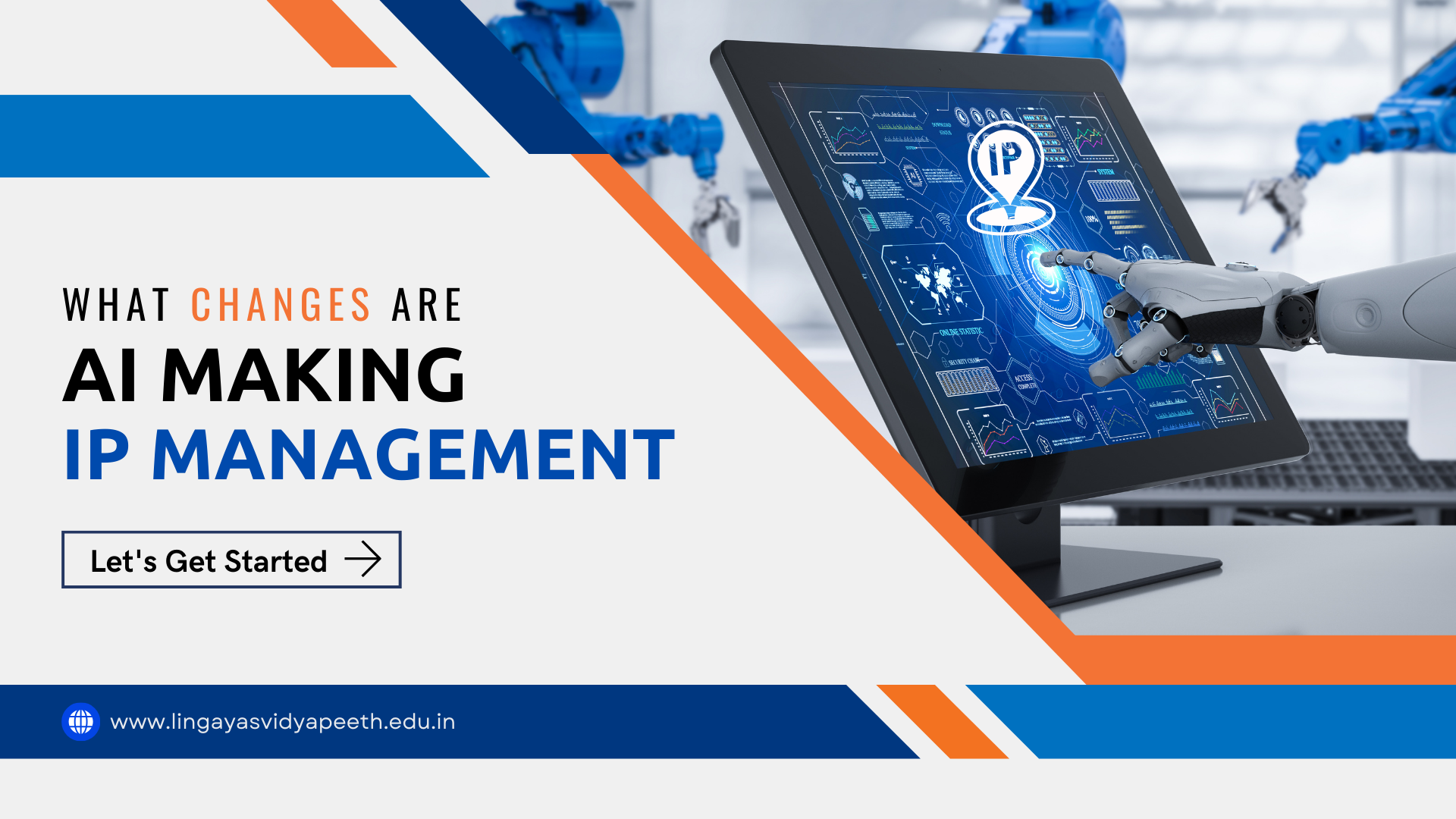Home » What Changes are AI Making to IP Management?

The core of innovation protection, intellectual property (IP) management, has traditionally depended on manual procedures and human knowledge. Although this strategy accomplished its goal, it had issues with data analysis, scalability, and efficiency. A new era of efficiency, precision, and strategic decision-making is being ushered in by artificial intelligence (AI), which is quickly changing intellectual property management.
IP administration has always required a lot of effort and resources. One of the most important components of IP strategy is looking for patents. However, this procedure may be laborious and inefficient due to the need to manually go through large databases. Due to the heavy reliance on human classification and analysis, portfolio management was prone to subjectivity and lost opportunities. Enforcing intellectual property rights was equally arduous, necessitating manual labour to locate any violations. These restrictions made it more difficult to make decisions quickly and left organizations vulnerable. These difficulties are being met head-on when AI enters the picture.
The speed and capacity of AI to identify intricate correlations between patents are its main advantages. It can find subtle correlations that older approaches would overlook by analysing large databases in a fraction of the time it takes for people to do so. AI is also capable of quickly summarising important patent text, which makes it easier to evaluate and comprehend patent claims.
Patent Reform is Necessary for Innovation
The goal of efficient IP management is to maximise the value of current assets.By proactively managing their IP portfolios, businesses can maximise the return on their innovation efforts thanks to this data-driven strategy.
Online IP rights enforcement has always been a difficult undertaking. But AI is great at handling massive amounts of data, which makes it great for tracking and enforcing intellectual property rights online. AI-powered computer vision algorithms can quickly identify possible infringements by continually analysing internet platforms for instances of trademark infringement, copyrighted content, and patented ideas.
Finding patterns in large datasets is one of AI’s advantages. This has important implications for the field of intellectual property. Large volumes of court cases, industry trends, and rival behaviour may all be analysed by AI, which can then combine these many datapoints to produce predictions. Companies are able to create proactive legal plans thanks to this foresight, possibly averting future expensive cases.
AI may be a valuable partner in the process of creating intellectual property, even though it cannot completely replace human ingenuity in invention. AI patent drafting technologies take an invention description or a sample patent claim and use existing Generative AI models, such ChatGPT or Claude, to generate a draft baseline of the patent application.

Although AI can greatly simplify the management of intellectual property (IP), its integration presents important ethical, legal, and security issues. Data security and privacy are a big problem. AI IP management systems will probably handle enormous volumes of private information, such as copyrights, trademarks, and patents. It is crucial to protect the security of this data. Data breaches may result in serious repercussions, such as lost profits or a total loss of competitive advantage.
What Is Data Mining? A Complete Guide
Conclusion –
In conclusion, AI is revolutionizing IP management through task automation, increased precision, and data-driven insights. It improves patent portfolios, streamlines patent searches, and fortifies enforcement. This gives IP managers the ability to maximize the value of IP assets and make strategic decisions. Nonetheless, issues with prejudice, ownership, and data security must be resolved.
From
Dr. Swapnila Roy
Associate Dean-R & D
Lingaya’s Vidyapeeth
Top Colleges in Faridabad
RECENT POSTS
CATEGORIES
TAGS
Agriculture Agriculture future AI Architecture artificial intelligence BA English BA Psychology BTech CSE BTech Engineering Business management career Career-Specific Education career guide Career Opportunities career option career scope Civil engineering commerce and management Computer Science Computer science engineering Data science degree education Engineering Engineering students English Literature english program Exam tips Fashion Design Fashion design course Higher Education Journalism journalism and mass communication law Law career Machine Learning MA Psychology Master degree mathematics MBA Mechanical Engineering Pharmacy Psychology Research and Development students
University Address: Nachauli, Jasana Road, Faridabad, Haryana
Toll Free: 1800-120-4613
Mobile : 8447744303 | 8447744304 | 8447744306 | 8447744309
Address: C-72, Second Floor, Shivalik, Near Malviya Nagar,
Above HDFC Bank, New Delhi 110017
Ph.No. - 011-46570515 / 45138169 / 41755703 / +91-7303152412
Jagmani Kutir, Ground Floor, Road No-1, Rajeev Nagar,
Near Darbar Marriage Hall, Patna-800024, Bihar
Contact No: 9818352069/8130120095
Mail: [email protected]
Copyrights © 1998 - 2025 Lingaya's Vidyapeeth (Deemed To Be University). All rights reserved.
It is important to note that the following email IDs and domains are fraudulent and do not belong to our university.
LV only conducts physical/online verification of any document related to examination on the following email id: